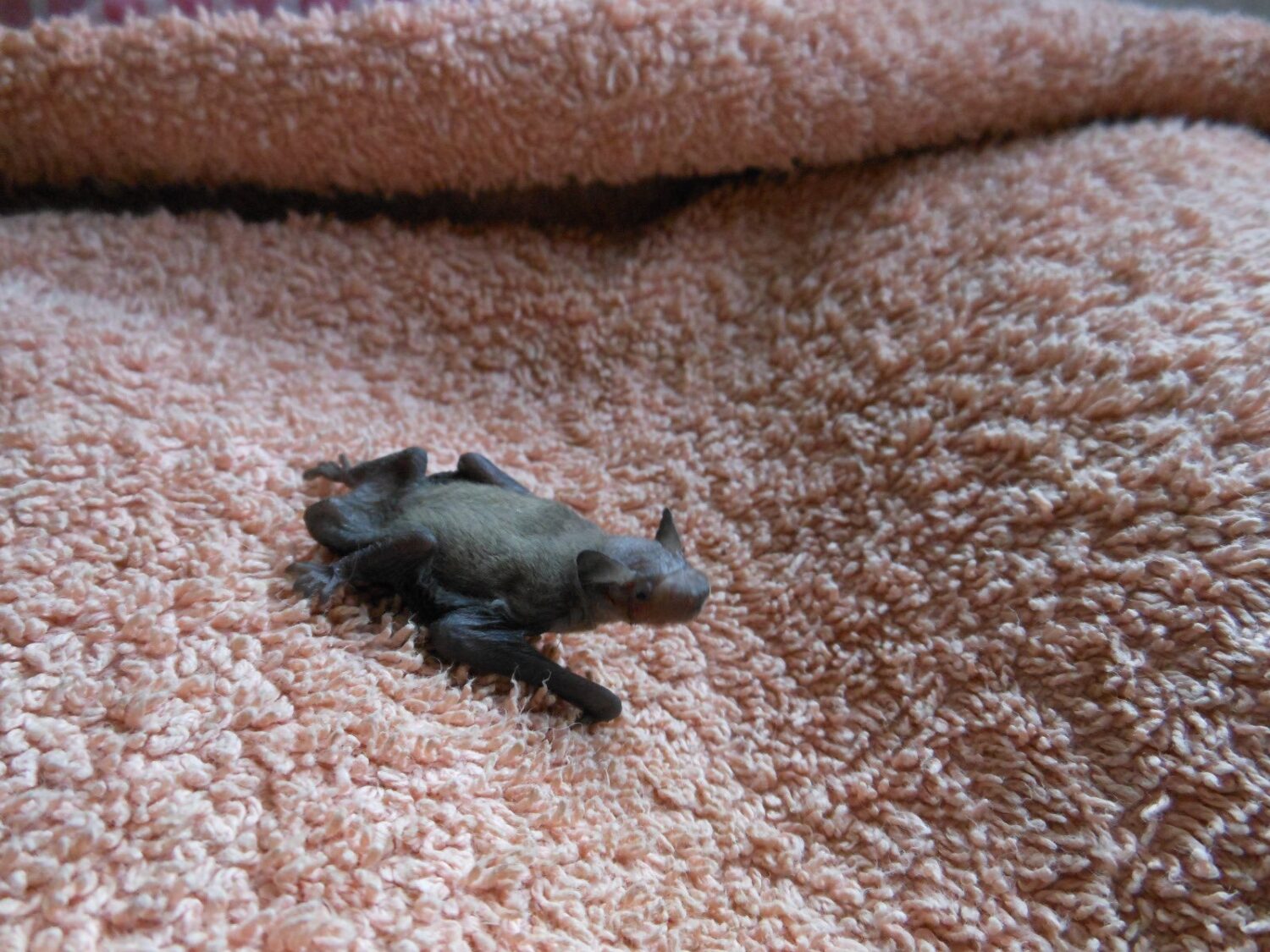Bats are often misunderstood. Did you know that they are more closely related to humans than they are to mice?
Bats are actually the only true flying mammals in the world & when I discovered that just one tiny pipistrelle can eat up to 3000 insects in a night, I was delighted that they are a regular visitor to my garden near Howick on warm evenings.
There are eighteen species of bat in the UK but here in Northumberland you are only likely to see one of following species: common pipistrelle, soprano pipistrelle, Natterer’s bat, whiskered bat, Brandt’s bat, brown long-eared bat, noctule or Daubenton’s bat.
Bats use echolocation to navigate & hunt for insects in the dark. They can live up to 30 years and females usually only have one baby a year.

In March I had the privilege of taking part in a bat care training session with the Northumberland bat group. I now have the knowledge & confidence to handle & transport sick, injured & orphaned bats safely; hydrate, feed, administer basic first aid and release accordingly.
Should you discover a bat that you believe to be in need of help you can do the following:
-Call the National Bat Helpline on Tel: 0345 1300 228.
-Without touching the bat, wear gloves & use a cloth to gently scoop the animal into a small, ventilated container.
-Place a soft cloth into the box to give the bat something to cling to.
-Keep in a warm safe place until help arrives.
-Or keep warm using a hot water bottle or heated seats in your vehicle if you are dropping off a stricken bat.
-Be sure to make a note of the exact location where you found the bat so that it can be returned & reunited with its roost.
Furthermore, the Bat Conservation Trust is trying to understand & conserve our bat populations. If you would like to help you could take part in a sunset survey any time between April & September simply by sitting in your back garden an hour after sunset (or before for a sunrise survey) and looking for bats & other nocturnal animals. You can submit your findings on The Bat Conservation Trust website, www.bats.org.uk